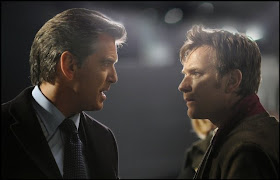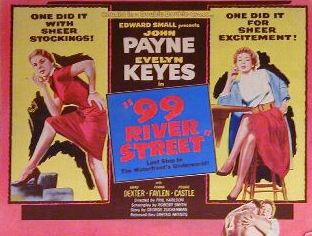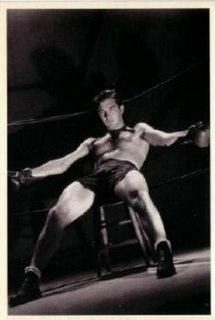
"Pierce Brosnan gives the strongest performance of his rather lazy career."
Huh?
So wrote The New Yorker's David Denby in the strongest review of his rather lazy career. (I'm joking!) Speaking from experience, when a person spends 20, 30 years reviewing movies, he/she is apt to run out of things to say and write something inane, usually in haste ("deadline" being the most convenient excuse for the lapse).
The aforementioned quote is from Denby's 8 March review of Roman Polanski's "The Ghost Writer," in which Brosnan indeed gives his strongest performance to date. That's not my quarrel. My problem is with the critic's rather facile use of the word "lazy." Brosnan may have made some dubious career decisions, as most actors are apt to do during lengthy careers, but that's different from a "lazy career." I think Denby simply selected the wrong adjective. Hastily.
As far as I'm concerned, Brosnan is in his prime and "The Ghost Writer," in which he indulges in a fascinating cat-and-mouse duet with Ewan McGregor (that's them together in the photo at the very top of this post), shows the actor in complete, effortless command of his craft.
Actually, Brosnan's post-007 career has been varied and impressive but then, even during the years he played James Bond, he managed to juggle things so that his resume would include such worthy films as John Borman's excellent "The Tailor of Panama," Bruce Beresford's "Evelyn," Richard Attenborough's "Grey Owl" and John McTiernan's "The Thomas Crown Affair" which, arguably, is better than Norman Jewison's original.
But it's what Brosnan has been doing in recent years that have made him so hugely watchable. He sparred aimably with Julianne Moore in Peter Howitt's "Laws of Attraction," a take on the Hepburn-Tracy flicks; he was paired with Salma Hayek and Woody Harrelson in Brett Ratner's "After the Sunset"; he was sensational as the oddball hitman hanging out with Greg Kinnear and Hope Davis in Richard Shepard's "The Matador" (great performance); he hooked up with with countryman Liam Neeson is David Von Ancken's "Seraphim Falls"; he teamed with Maria Bello and Gerard Butler in Mike Barker's curiously little-seen "Butterfly on a Wheel" (aka, "Shattered), and he, Patricia Clarkson, Chris Cooper and Rachel McAdams examined "Married Life" in Ira Sachs' dark comedy.

And, of course, there was Brosnan's game, playful turn as one of Meryl Streep's former lovers in Phyllida Lloyd's film of "Mamma Mia!," in which he demonstrated a raspy, lived-in singing voice that reminded me of an old rocker. Very appealing (but then I have a weakness for non-singers).
But, yes, "The Ghost Writer" is the film that puts him on another level altogther, and currently surrounding it are roles in no fewer than three titles - Chris Columbus's "Percy Jackson & the Olympians: The Lightning Thief," Allen Coulter's "Remember Me" and Shana Feste's "The Greatest."
And that's not all. Coming up are George Ratliff's "Salvation Boulevard" with Jennifer Connelly, Marisa Tomei, Ed Harris, Rebecca Hall and Brosnan's "Matador" co-star, Greg Kinnear, and Brian Levant's "Vanilla Gorilla" which reportedly is actually about a gorilla. Whew. Lazy?
I think not.









